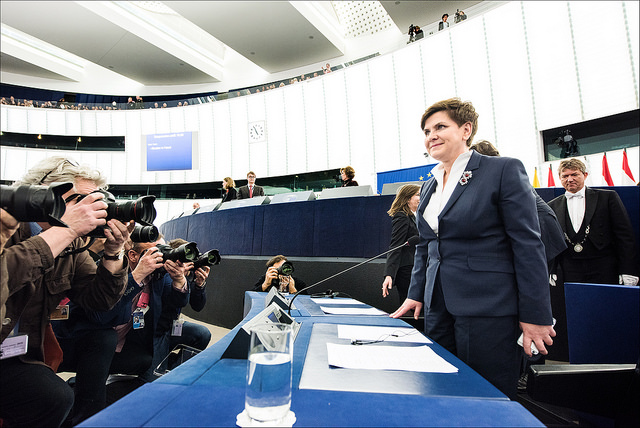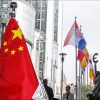
These are matters of calendars, which are planned a long time in advance. But a NATO summit is to be held in Warsaw on 8 and 9 July, attended by Obama, who will also take part in another summit with the EU (whose European Council President, Donald Tusk, a Pole, is currently seen as ‘public enemy number one’ in his own country). On 27 July Pope Francis will celebrate the Roman Catholic Church’s World Youth Day in the same city. All this at a time when the EU has instigated, after issuing its ‘Opinion’ of 1 June, an inquiry into the Polish government of the right-wing Law and Justice Party (Prawo i Sprawiedliwość, PiS) for ‘systematically threatening’ the rule of law.
After months of conversations with the Polish authorities, the Commission is looking into whether the government has tried to rig the Constitutional Tribunal and steer the constitution in an anti-democratic direction. In particular it cites: (1) the appointment of judges to the Constitutional Tribunal and the passing of the Tribunal’s rulings on these matters of 3 and 9 December 2015 (although the President of the Republic, Andrzej Duda, has regained control of the three that were due to take place in December); (2) the law of December 2015 modifying the Constitutional Tribunal, the latter’s ruling on this law and compliance with the latest rulings handed down by the tribunal; and (3) the impact of the reform of the constitution embodied in the new legislation, passed and enacted this year.
This is the first time the European Commission has decided to issue an Opinion of this sort against a member state. The first steps, analysed in this blog at the time, were based on the treaties and the ‘new EU framework to strengthen the rule of law’, with which the EU executive furnished itself in 2014. Now the government, led by Prime Minister Beata Szydlo –but run from the sidelines by Jarosław Kaczyński– is required to respond in ‘a reasonable time’, although Poland has queried the Commission’s legitimacy and legal basis for initiating such a procedure. In the last resort, assuming Poland does not toe the line, the other EU members could use Article 7 of the Treaty of Lisbon to impose sanctions and even suspend Warsaw’s voting rights in the Council of the EU. This would require unanimity among the other 27, which is improbable given Poland’s allies, such as Viktor Orbán’s Hungary, also in Brussels’ sights in this regard.
It is an issue of great importance for two reasons. The first is internal, because Poland is the chief country among the so-called ‘new members’ of the EU –from its eastern flank, of course– and what is happening is a serious additional problem for a Union that at the same time has to contend with the British referendum on Brexit, the Greeks’ by no means resolved situation in the Eurozone, the refugee crisis and a flat economic outlook, among others. The second is external, because the steps taken by the Commission will underscore the values it claims to promote in the world, which will only be believable if it upholds them within its own ranks. If everything comes to nothing it is bound to lose credibility.
The new Polish government, opposed to Tusk in his vision of Poland and Europe, is openly Eurosceptical. It has refused to accept the quota of 7,000 refugees it has been allocated, and supports the retrograde changes to the EU put forward by Cameron. But it does not go as far as supporting Brexit, among other reasons because it is currently the country with most immigrants in the UK. Moreover its relations with Berlin are essential, and they seem unlikely to fracture, but the German government is disinclined to strengthen them while Poland fails to mend its theocratic and regressive ways.
It is to be hoped that both Barack Obama and Pope Francis will also take advantage of their visits to Warsaw to deplore these democratic relapses in a country whose security concerns vis-à-vis its Russian neighbour are going to be met by its NATO allies.


